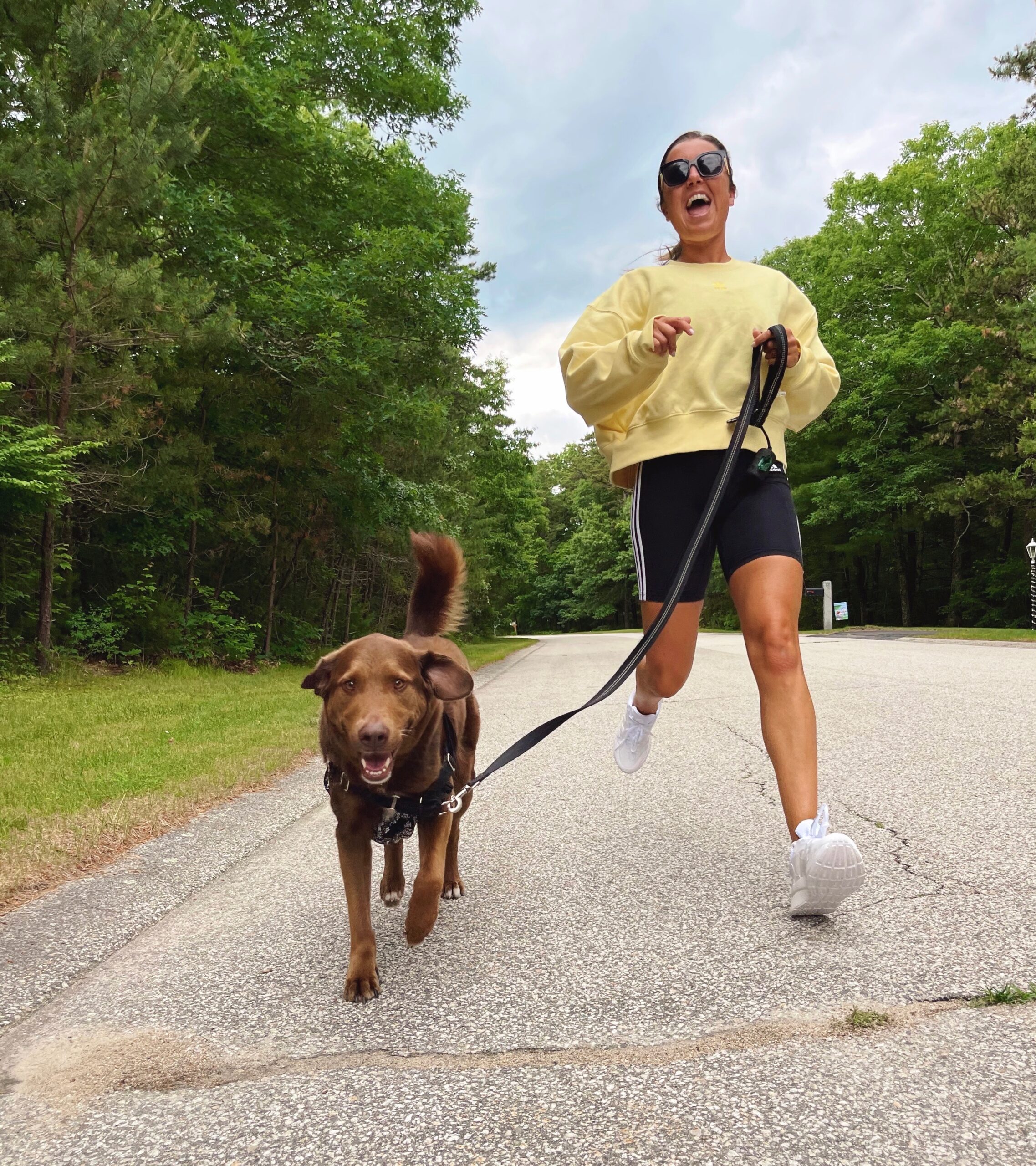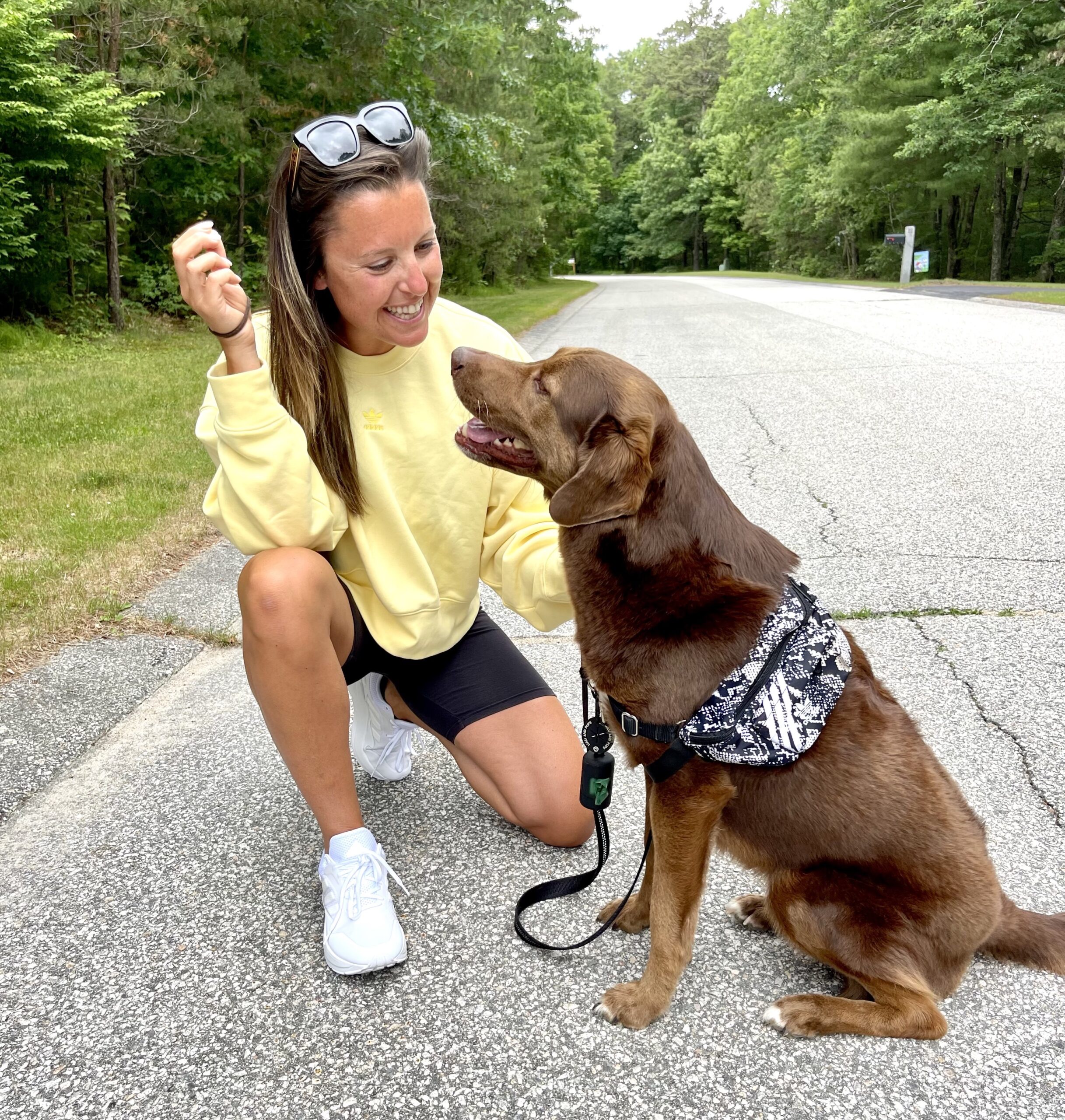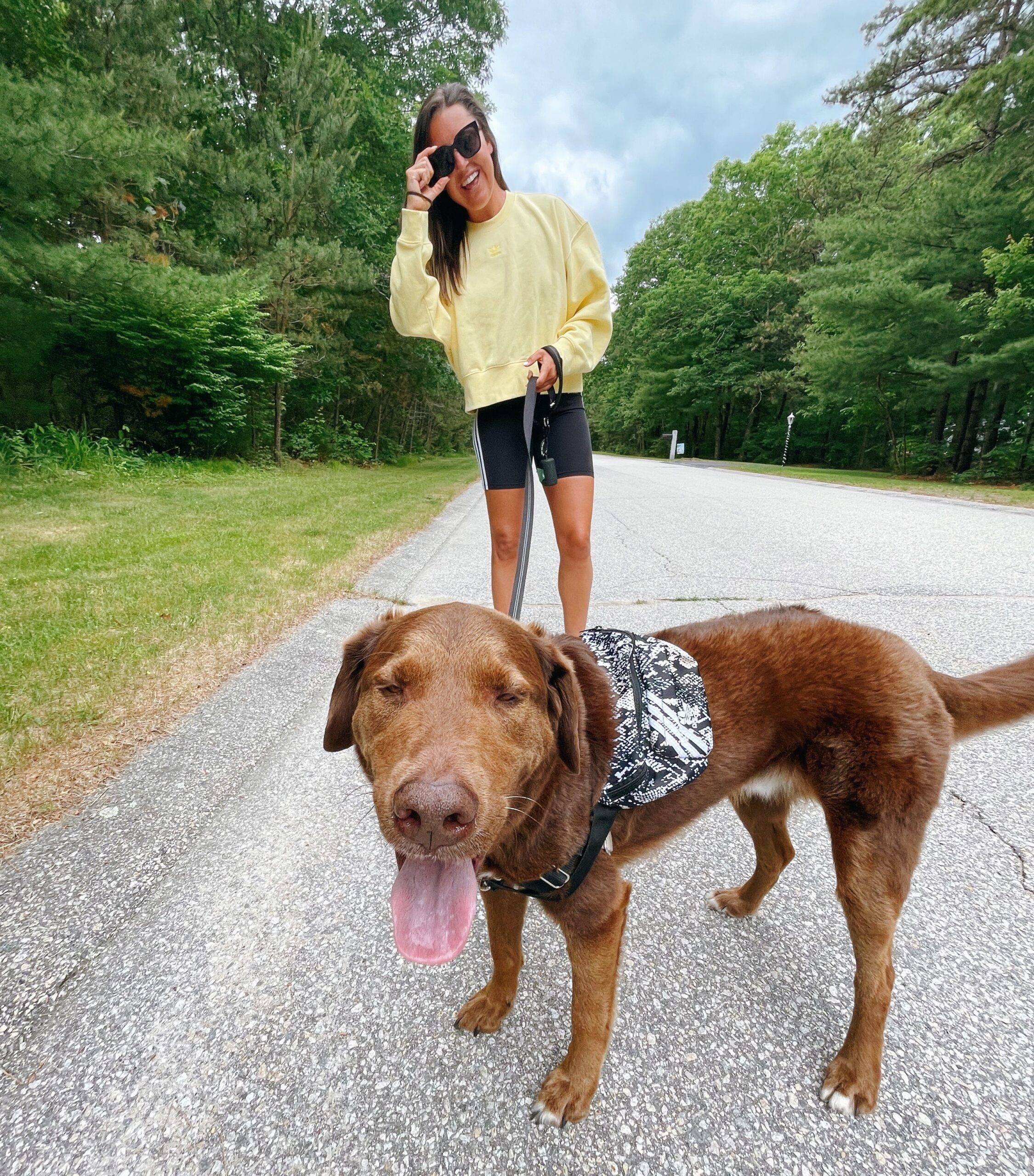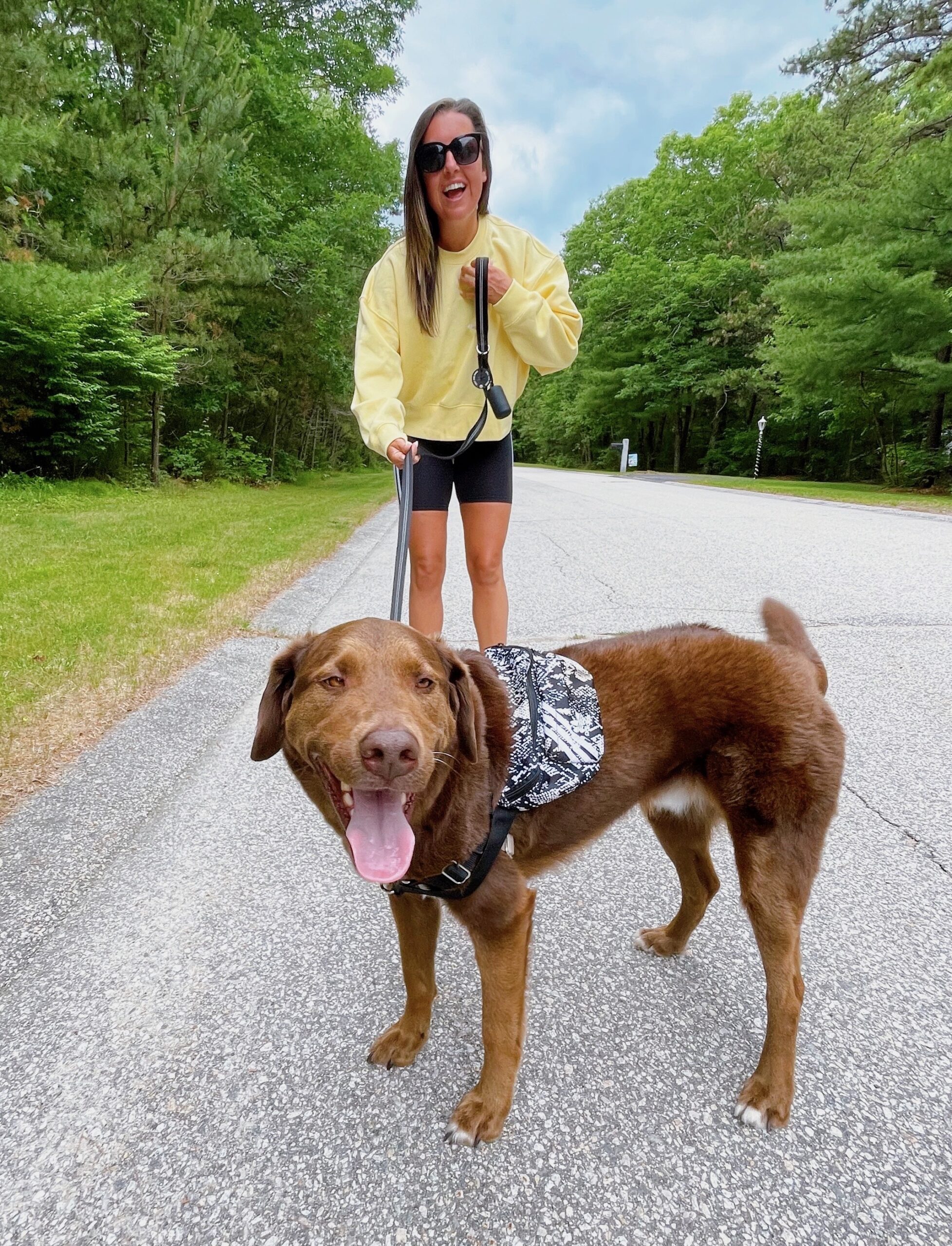Over the past year, GLP-1 medications have emerged as one of the most talked-about tools in weight management. These prescription drugs [such as Semaglutide (Ozempic, Wegovy) and Tirzepatide (Mounjaro, Zepbound)] are transforming the approach to obesity and type 2 diabetes. As more people begin their journey with these medications, one common question remains: “What does a typical week look like while on GLP-1?”
The first few days can feel like entering unfamiliar territory. From changes in appetite to adjusting to smaller meals, from experiencing mild side effects to building new habits, there is much to process. Add to this the importance of maintaining muscle mass, balancing blood sugar levels, and dealing with fatigue, and it becomes clear why guided, well-structured support makes a difference.
GLP-1 alone is not the answer. It is a starting point. For real, long-term change, a thoughtful routine that includes personalized meals, intentional workouts, and expert support becomes critical. A week on GLP-1, when planned well, can be the foundation for a life-changing transformation. And that is precisely what this article aims to help you with.
Understanding GLP-1 and Its Mechanism
GLP-1 stands for Glucagon-Like Peptide-1, a naturally occurring hormone that plays a critical role in regulating blood sugar levels and appetite. When GLP-1 medications are introduced into the body, they amplify the effects of this hormone, leading to slower digestion, reduced appetite, and more controlled insulin secretion. As a result, users tend to feel full sooner, crave less, and stabilize their blood glucose.
Popular GLP-1 medications include Semaglutide (Ozempic, Wegovy), Tirzepatide (Mounjaro, Zepbound), Liraglutide (Saxenda), and Dulaglutide (Trulicity). Though initially approved to manage type 2 diabetes, many are now prescribed off-label or through obesity treatment plans due to their noticeable impact on body weight and metabolism.
However, it is important to note that these medications are powerful tools, but they are not miracle drugs. Their success depends heavily on the routines they are paired with, especially food habits, exercise, and expert guidance.
What to Expect in Your First Week on GLP-1
The first seven days are all about adaptation. Your body starts responding to signals it is not used to. Most users report a noticeable reduction in appetite within 48 hours. The feeling of fullness after a few bites becomes more frequent. You might feel nauseous or bloated, and even minor fatigue is common.
Other side effects include:
- Mild constipation or diarrhea
- Food aversions (particularly to high-fat meals)
- A metallic taste in the mouth
- Slight dizziness or headaches (due to reduced food intake or hydration)
These effects are usually short-lived and manageable with small lifestyle changes, such as:
- Eating slowly and chewing thoroughly
- Choosing lighter, protein-rich meals
- Staying hydrated with plain water or infused herbal teas
By Day 5 or 6, many people begin noticing a new rhythm and a new connection with their body. Hunger cues shift. Energy may begin to normalize. And mentally, users start thinking differently about food.
Why GLP-1 Alone is Not Enough
GLP-1 medications have proven to be powerful tools in promoting weight loss and improving metabolic health. However, relying solely on the medication, without changes in nutrition, physical activity, and behavioral habits, may lead to suboptimal outcomes or even setbacks. Let us understand why.
- First, GLP-1 medications suppress appetite and slow gastric emptying. However, if an individual does not intentionally consume nutrient-dense meals with adequate protein, fiber, and healthy fats, their body may become deficient in essential vitamins and minerals. Over time, this can lead to fatigue, weakness, hair loss, or even compromised immunity.
- Second, GLP-1-induced weight loss, when unsupported by resistance training or protein intake, can lead to muscle loss. Muscles are metabolically active tissues; losing them can lower one’s basal metabolic rate, making it harder to sustain weight loss.
- Third, without balanced eating, people may experience erratic blood sugar levels, especially those with diabetes, which can lead to energy crashes or sugar cravings.
- Finally, relying only on medication without learning sustainable behavior change may cause people to revert to unhealthy patterns once they stop the drug.
The Role of a Coach
Without incorporating exercise and a structured diet plan, there is a high risk of losing lean muscle mass along with fat. Research suggests that combining resistance training with GLP-1 can significantly reduce the percentage of muscle loss during weight reduction. Additionally, nutrient-dense meals help prevent energy dips, which are common when calorie intake drops. This is where expert support comes in. A coach or expert nutritionist can:
- Help you meet your protein and fiber goals through a balanced diet to preserve lean mass.
- Create an exercise plan that focuses on strength, stamina, and metabolic efficiency.
- Guide you through side effects and how to respond to them with practical solutions.
- Offer ongoing behavioral counseling to instill habits around mindful eating, portion control, and emotional triggers.
- Keep you accountable through weekly progress checks and structured goal-setting.
With expert guidance, GLP-1 becomes a foundation, not a finish line, in your long-term health journey.
Sample Meal Plan: What to Eat During Week 1
The first week on GLP-1 medication is a lot more than appetite reduction. It is about nourishing your body to work with the medication, not against it. Since GLP-1 slows digestion and curbs hunger, the goal of your meals is to be nutritionally dense yet light on the stomach. This is a pivotal time to establish habits that prioritize protein, fiber, and hydration.
Guiding Principles
This meal plan has three goals: maintaining energy levels, preventing muscle loss, and managing early side effects like nausea or bloating. Each day’s menu includes high-protein, moderate-fibre meals spaced evenly to support digestion. Small meals work better than heavy ones, and hydration is key throughout the day. These meals are not restrictive; they are strategic.
Day 1
This day prioritizes ease of digestion. Breakfast and snacks offer protein, complex carbs, and hydration. Lunch is comforting and easy on the gut. Dinner includes pan-seared tofu with sautéed spinach. The aim is to allow the body to adjust to the GLP-1 while still getting adequate nourishment.
- Breakfast: Greek yogurt with chia seeds, strawberries, and 6 almonds
- Snack: Boiled egg + 1 cucumber stick
- Lunch: Grilled chicken salad with leafy greens, chickpeas, and olive oil dressing
- Snack: Cottage cheese with sliced mango
- Dinner: Pan-seared tofu with sautéed spinach and a small quinoa bowl
Day 2
With slight adaptation, today’s meals include more texture. Breakfast is overnight oats with skim milk, walnuts, and berries, which provide soluble fiber and antioxidants. Lunch is light yet protein-packed. Dinner includes soothing and rich-in-nutrient dishes.
- Breakfast: Oats with skim milk, walnuts, and blueberries
- Snack: Half a pear + protein shake
- Lunch: Moong dal + brown rice + sautéed bhindi (okra)
- Snack: Roasted chana (30g)
- Dinner: Steamed fish + mixed vegetable stir-fry
Day 3
Today, we increased our protein intake with eggs. Lunch includes more protein with healthy carbs. These options provide comfort and balance while reinforcing gut health.
- Breakfast: Egg white omelet with bell peppers, onions, and mushrooms
- Snack: Apple slices + peanut butter (1 tsp)
- Lunch: Rajma curry + multigrain roti + salad
- Snack: Greek yogurt + flaxseeds
- Dinner: Tofu & vegetable soup + half portion of whole wheat noodles
Day 4
As the body adjusts, this day includes a smoothie bowl to satiate you in the morning. Lunch is a grilled paneer bowl with red rice and enough veggies, and dinner is a light meal with millet bread. This plan supports digestion and gives you a break from heavy textures.
- Breakfast: Smoothie bowl (spinach, banana, chia, protein powder)
- Snack: A handful of pistachios
- Lunch: Grilled paneer bowl with red rice, sautéed capsicum, corn, and mint chutney
- Snack: 1 boiled egg + tomato slices
- Dinner: Mushroom curry + millet roti + cucumber raita
Day 5–7
Continue rotating meals with variety. Try palak tofu, sambar with millet dosa, fish curry with brown rice, or quinoa khichdi with mixed vegetables.
Important tips:
- Stay hydrated: Sipping water throughout the day helps counter nausea and bloating.
- Chew slowly: This helps your brain catch up with satiety cues, which is important as GLP-1 slows gastric emptying.
- Avoid sugary and greasy foods: They can trigger digestive discomfort.
- Include protein in every meal: It preserves muscle and helps you feel full longer.
Exercise Guide: Weekly Movement Plan
Physical activity plays a vital role in GLP-1-assisted weight loss. While the medication works on the metabolic side (appetite suppression and blood sugar regulation), exercise protects muscle mass, improves insulin sensitivity, and enhances fat loss. In fact, research shows that pairing strength training with GLP-1 significantly reduces muscle mass loss. Let us now break down a 7-day beginner-friendly plan.
Day 1: Gentle Start – Brisk Walk for 30 Minutes
The idea today is to introduce movement without taxing the body. A brisk walk helps boost circulation, wake up the metabolism, and set the tone for a week of momentum. Walking also promotes digestion.
Day 2: Resistance Training – Lower Body (30 Minutes)
Focus on bodyweight squats, glute bridges, lunges, and step-ups. This strengthens large muscle groups and improves insulin sensitivity. It also helps counteract early muscle loss.
Day 3: Active Recovery – Stretching and Mobility (20 Minutes)
Yoga or guided stretching is recommended. This allows muscles to recover while promoting blood flow. It also helps with bloating and posture.
Day 4: Cardio Intervals – 20 Minutes of Alternating Jog-Walk or Cycling
Introduce light intervals. This elevates heart rate, burns calories, and enhances cardiovascular fitness without overwhelming your system.
Day 5: Resistance Training – Upper Body (30 Minutes)
Exercises include push-ups (inclined or on knees), dumbbell rows, shoulder presses, and bicep curls. Strengthens arms, back, and core muscles while improving metabolic health.
Day 6: Low-Intensity Steady-State (LISS) – 40-Min Walk or Swimming
LISS helps burn fat while allowing for recovery. It’s effective for weight management and easy on the joints.
Day 7: Full Body Circuit (30 Minutes)
Combine squats, push-ups, mountain climbers, and planks. Circuit training boosts heart rate and offers a combination of strength and cardio.
Why Coaching Makes a Difference
Having a certified coach while on GLP-1 is strategic guidance. A coach knows when to tweak your calories, when to push your workouts, and how to personalize your plan. They help prevent pitfalls and optimize every step of your journey.
Coaches help build accountability, structure check-ins, and emotionally support you during plateaus or side effects. For many, a coach becomes a sounding board and helps interpret your body’s responses, whether it is appetite, fatigue, or digestion.
Lastly, coaching offers perspective. It prevents extreme choices, reminds you of long-term goals, and helps you stay consistent even when motivation dips. GLP-1 paired with coaching is about building a sustainable life rhythm.
HealthifyMe Note
As a health coach working with dozens of individuals on GLP-1 plans, I often tell clients that medication may start the journey, but it is your effort that takes it forward. Your first week is not about chasing the scale. It is about building trust with your body again. Eat to nourish, move to build strength, and listen to how your system reacts. Small meals, light workouts, and guided changes are the foundations. You are not alone in this. Let our coaches, nutritionists, and trainers walk with you step-by-step. Your success is not in doing it perfectly, but in doing it mindfully. Remember, GLP1 is not a magic pill. A balanced diet and exercise program is the key to sustainable weight loss and overall fitness.
The Final Word
One week might seem too short to call a transformation, but it is often enough to notice the shift. With GLP-1, your appetite decreases, but your need for structure increases. This first week is your test lab. How your body responds, how your emotions shift, how your habits settle, it all begins here.
Do not rush it. Stay with the process. Think less about weight and more about health. Pair your prescription with movement. Pair your new appetite with mindful eating. And most importantly, stay connected with your own body, your coach, and your goals.
At HealthifyMe, the GLP-1 + Coach Plan is built for this. We combine expert nutrition, custom workouts, and clinical oversight to make this journey more informed and less overwhelming. GLP-1 with HealthifyMe is not just medication; it is a transformation with intention.
Frequently Asked Questions (FAQs)
Q: What is GLP-1, and why is it used for weight loss?
A: GLP-1 (Glucagon-Like Peptide-1) is a hormone that regulates insulin and appetite. GLP-1 medications mimic this hormone to slow digestion, reduce hunger, and support controlled weight loss. They are prescribed for type 2 diabetes and obesity management.
Q: What should I eat in the first week of GLP-1 medication?
A: You should eat small, frequent meals that are high in protein and fiber. Think boiled eggs, moong dal chilla, oats with chia seeds, or dalia with vegetables. These foods are gentle on digestion, support satiety, and help counter early side effects like nausea.
Q: Can I exercise during my first week on GLP-1?
A: Yes, but start gradually. Brisk walks, light stretching, or low-impact strength training are ideal. Avoid strenuous workouts in the first few days as your body is adjusting. Movement helps preserve muscle and boosts mood.
Q: What are the common side effects I might face?
A: Nausea, bloating, or fatigue are common but usually mild. These happen because GLP-1 slows digestion. Staying hydrated, eating slowly, and avoiding greasy foods can help ease symptoms.
Q: How can I manage nausea while on GLP-1?
A: Nausea can be managed by choosing light, protein-rich meals and sipping water throughout the day. Avoiding high-sugar or spicy foods also helps. Ginger tea and peppermint can soothe the stomach.
Q: Do I need to follow a special diet?
A: Not necessarily, but your meals should prioritize protein, fiber, and balanced carbs. Avoid large meals. Small, well-planned meals make the medicine more effective and reduce side effects.
Q: Will I lose muscle while on GLP-1?
A: You may, especially if your diet lacks protein or if you are not exercising. To preserve muscle, consume at least 100g of protein a day and include resistance workouts twice a week.
Q: How much water should I drink?
A: Aim for at least 2.5–3 liters per day. GLP-1 medications slow gastric emptying, and dehydration can worsen nausea or dizziness. Staying hydrated also supports digestion and energy.
Q: Do I really need a coach or expert?
A: Yes, expert support helps you stay on track, adjust your plan, and manage side effects. A coach provides accountability, motivation, and personalization. That makes your journey smoother and more effective.
Q: Can I continue taking other supplements on GLP-1?
A: Most supplements are safe, but it is important to discuss this with your healthcare provider or dietitian. Timing may matter, especially for vitamins that require food for absorption.
Q: How soon will I start seeing results?
A: Most users begin to notice appetite suppression within the first 3–4 days. Physical weight loss may begin by the end of Week 2, depending on your adherence to diet and activity.
Research Sources
1. Health and Well-Being Coaching Adjuvant to GLP-1 Induced Weight Loss
4. How to Understand and Use the Nutrition Facts Label.
6. Evaluation of the effect of macronutrient combinations on blood sugar levels in healthy individuals
7. Dietary Guidelines for Americans, 2020-2025.
8. Weight loss strategies and the risk of skeletal muscle mass loss
9. Exercise Alters Gut Microbiota Composition and Function in Lean and Obese Humans
10. Exercise and glucagon-like peptide-1: Does exercise potentiate the effect of treatment?
11. Healthy Weight Loss Maintenance with Exercise, Liraglutide, or Both Combined
13. The diseasome of physical inactivity–and the role of myokines in muscle-fat cross-talk













































 I’d highly recommend
I’d highly recommend